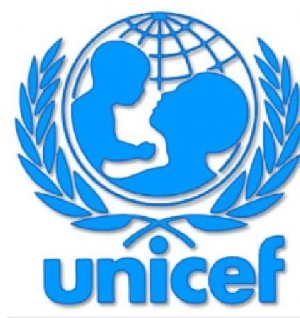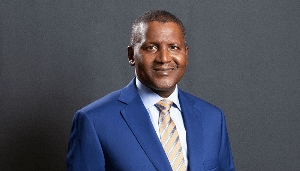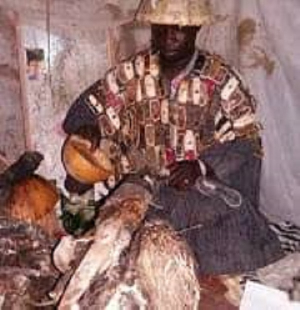The United Nations Children’s Fund (UNICEF) in collaboration with the Germany Embassy in Ghana and the Green Republic Project, has launched a tree planting campaign for selected basic schools in Accra and Tamale.
The exercise, which began at the Akporman Basic School near Abokobi in Accra; and Dapkema M/A Primary A and B in Tamale, was undertaken to commemorate the World Environmental Day with an objective of inspiring children to grow trees to protect the natural environment.
World Environment Day is celebrated on the 5th of June every year, and is the United Nation's principal vehicle for encouraging awareness and action for the protection of the environment.
Globally, UNICEF is committed to increase its contribution to environmental sustainability, given both the importance of the issue to children and the global commitment to the Sustainable Development Goals (SDGs).
As per the greening policy issued in June 2015, UNICEF is stepping up its efforts to systematically green the organisation, including reporting and investing in sustainable energy and resource efficient facilities and operations; this includes water, paper and waste management.
In Ghana, UNICEF has introduced waste recycling, carpooling and use more fuel-efficient vehicles, installed energy saving air conditioning and lighting systems, and elimination of single use plastic bottles and cups.
Speaking to the Ghana News Agency (GNA) Madam Anne-Claire Dufay, UNICEF Country Representative in Ghana, underscored the need to protect the planet as it is the present and future of children; highlighting air pollution as a concern.
Madam Dufay said UNICEF noticed serious deforestation in Ghana and also noted the use of plastics and all of that was not contributing to a clean and safe environment for children in Ghana.
She said the tree planting initiative was partly based on its day to day paper consumption in its Accra and Tamale offices, and to compensate that, UNICEF was planting 20 trees in Akporman Basic School, adding that “in total we will plant 200 trees in Accra and Tamale”.
She reiterated that this was to show its commitment towards environmental sustainability and to inspire institutions and other offices to do same. Madam Dufay told GNA that UNICEF also organises awareness raising sessions in schools for children so they know issues relating to environmental protection and also contribute to the protection of the planet.
Mr Helge Sander, German Deputy Ambassador to Ghana said the theme for this year’s celebration was “Beating Air Pollution”; stating that beating air pollution was easier if people stopped deforestation.
He said fighting deforestation meant to embrace afforestation to protect the planet; to reduce carbon dioxide levels in the air and these were done by planting trees.
Mr Sander said trees develop a big network of roots, which help keep water in the ground and also keep the soil where it should be, preventing erosion from wind and from water.
He said in Ghana, a lot of civil society organisations had understood that active fight against climate change meant active fight for more trees in Ghana.
Mr Nana Yaw Osei- Darkwa, Convener, Green Republic Project, said trees offered a natural solution to the climate challenge because climate change was basically caused by emissions of greenhouse gases into the atmosphere.
He said it was a world known fact that trees absorb carbons and these same carbons cause climate change so they decided to plant twenty million trees in the next ten years as their contribution to the fight against climate change.
Mr Osei-Darkwa, who said he was excited about the collaboration with UNICEF and the German Embassy, said that the best way to beat air pollution was to saturate the environment with a lot of trees, which are the best extractors of carbons from the atmosphere.
General News of Thursday, 6 June 2019
Source: ghananewsagency.org

















